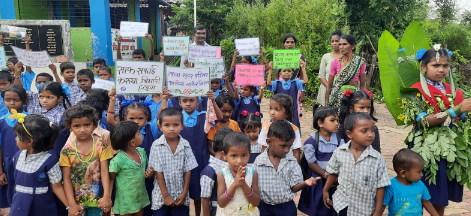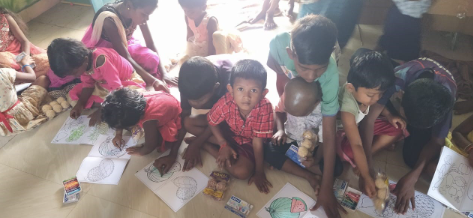Introduction:
Malnutrition remains a pressing global health concern, especially among children under the age of six. Beyond its immediate impact on physical health, malnutrition can significantly affect cognitive development during the crucial early years of a child’s life. In this blog, we will delve into the intricate relationship between malnutrition and cognitive development in young children, exploring the long-term consequences and potential interventions.

The Importance of Early Years:
The first six years of a child’s life are characterized by rapid brain development and the formation of neural connections. Proper nutrition plays a pivotal role in supporting these processes. Malnutrition during this critical period can disrupt the delicate balance necessary for optimal cognitive growth.
Types of Malnutrition:
Malnutrition isn’t limited to a lack of food; it also includes insufficient intake of essential nutrients. Protein-energy malnutrition, iron deficiency, and inadequate intake of vitamins and minerals are common culprits. Each type of malnutrition can impact cognitive development in distinct ways.

Effects on Cognitive Development:
Impaired Brain Growth: Malnutrition can lead to stunted physical growth, including the brain. A poorly nourished brain may struggle to develop essential cognitive functions, such as memory, attention, and problem-solving.
Reduced Learning Abilities: Children suffering from malnutrition often experience difficulties in school due to impaired concentration and learning abilities. The impact can be long-lasting, affecting academic performance and future opportunities.
Behavioral and Emotional Challenges: Malnutrition can contribute to the development of behavioral and emotional challenges, including anxiety and depression. These issues can further hinder cognitive development by creating additional obstacles to learning and social interaction.
Addressing the Issue:
Nutritional Interventions: Implementing comprehensive nutritional interventions is crucial. This includes ensuring access to diverse and balanced diet rich in essential nutrients. Government programs, community initiatives, and educational campaigns can help raise awareness and provide support.
Early Screening and Intervention: Regular health check-ups should include assessments of nutritional status. Early detection of malnutrition allows for timely intervention, preventing long-term cognitive consequences.
Education and Support for Parents: Empowering parents with knowledge about proper nutrition, breastfeeding, and the introduction of solid foods can significantly contribute to a child’s well-being. Community workshops and educational programs can be instrumental in achieving this.
Policy Changes: Advocacy for policy changes that address the root causes of malnutrition is essential. This includes addressing issues such as poverty, lack of access to clean water, and inadequate healthcare.

The link between malnutrition and cognitive development in children under six years old is a complex and multifaceted issue. By understanding the various dimensions of malnutrition and its consequences on cognitive growth, we can work towards effective interventions and policies that ensure every child has the opportunity to reach their full potential. Investing in the well-being of our youngest generation is an investment in a healthier, more prosperous future for us all.








